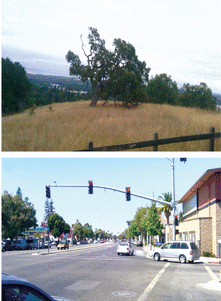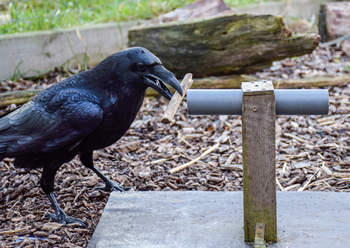Sunday, 25 March 2018
The Many Events Without Which We Wouldn’t Be Here To Talk About Them
 In the course of evolution, there have been many times when the future existence of my brain as I write these lines and yours as you read them has hung by the slenderest thread. Without the events, many of them quite unlikely, that occurred at these times, we would not be here today to speculate about their nature (or at least not in our current form). (more…)
In the course of evolution, there have been many times when the future existence of my brain as I write these lines and yours as you read them has hung by the slenderest thread. Without the events, many of them quite unlikely, that occurred at these times, we would not be here today to speculate about their nature (or at least not in our current form). (more…)
From the Simple to the Complex | Comments Closed
Wednesday, 7 March 2018
“Winner effect” Makes Subordinate Mice Dominant

This week I’d like to tell you about an experiment by Hailan Hu and his team at Zhejiang University, in China. These researchers used optogenetic methods and various wavelengths of light to excite or inhibit, on command, a particular population of neurons in the dorsomedial prefrontal cortex (dmPFC) of mice. (These neurons receive their natural inputs from the mediodorsal portion of the thalamus.) When the researchers excited these neurons in previously subordinate mice, they began to win confrontations with previously dominant mice, forcing them to retreat in a tube resembling a narrow tunnel (see photo above) and let them pass first. (more…)
Pleasure and Pain | Comments Closed
Thursday, 22 February 2018
Walking in Nature Stops You from Brooding

If you can manage it, try to go out and walk a bit each day in a large park or other green space (not always easy in poor neighbourhoods. Why? Because yet another study, since the first one by Roger Ulrich in 1984, has confirmed the benefits of natural environments for reducing our tendency to ruminate (focus our thoughts repetitively on negative aspects of ourselves). This new study was done by Gregory Bratman and his colleagues. It is entitled “Nature experience reduces rumination and subgenual prefrontal cortex activation”, and it was published in the journal PNAS in July 2015. (more…)
Body Movement and the Brain | Comments Closed
Wednesday, 7 February 2018
Are crows just as good at planning as the great apes?

Over the years, many studies have been published on the intelligence of crows, ravens, jays and other corvids (members of the crow family). But according to several specialists on the subject, a study entitled “Ravens parallel great apes in flexible planning for tool-use and bartering,” published in July 2017 in the journal Science, reveals that birds in this family have a heretofore unexpected ability to plan a future behaviour after learning something under experimental conditions. The conditions in this study were such that the behaviour was unlikely to have arisen from a more or less innate adaptation to the birds’ natural environment. The ravens learned to use a rock to get a piece of food out of a box built by humans—certainly not a natural feature of the ecological niche in which their species evolved. Nevertheless, once they had learned this behaviour, they were able to select the rock out of a group of objects, then wait for as many as 17 minutes for the researchers to show them the box again, and then use the rock to get the food out of the box. (more…)
From Thought to Language | Comments Closed
Tuesday, 23 January 2018
The Mere Presence of Your Smartphone Reduces Your Cognitive Capacity

An article entitled “Brain Drain: The Mere Presence of One’s Own Smartphone Reduces Available Cognitive Capacity”, published by Adrian Ward and his colleagues in April 2017, suggests that smartphone owners’ cognitive capacities may be reduced by the mere fact of knowing that their devices are close at hand.
Ward’s study included nearly 800 subjects, all of whom were smartphone users. They were asked to perform a series of tests that required a high degree of concentration in order to achieve good results. In the first experiment, the subjects were divided into three groups. The subjects in the first group placed their phones on the table in front of them, face down; those in the second group kept their phones in their pockets or handbags; and those in the third group left their phones in another room. The subjects who had left their phones in another room achieved significantly better test results than those who had their phones in front of them on the table, and slightly better results than those who had their phones in their pockets or bags. (more…)
From Thought to Language | Comments Closed







